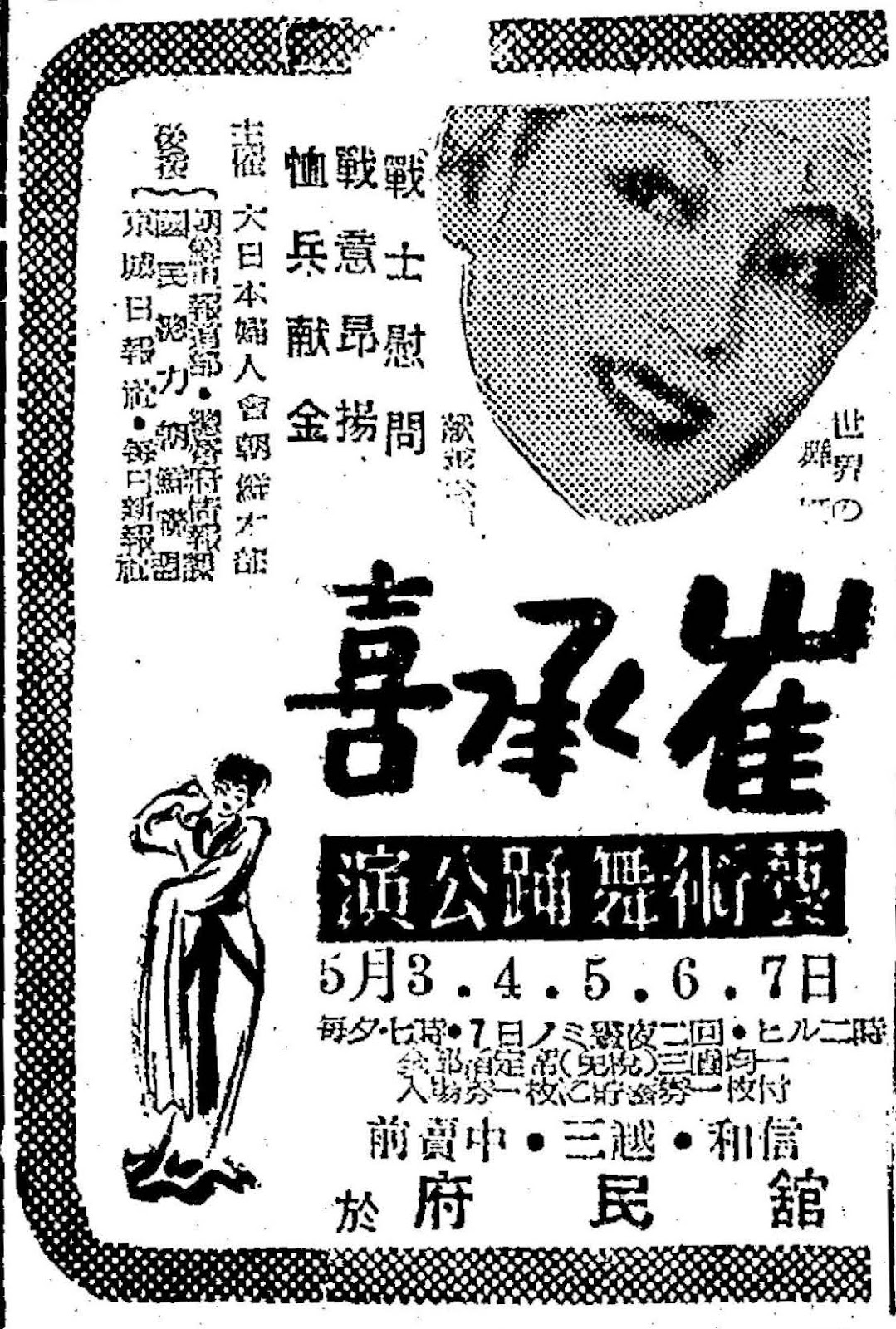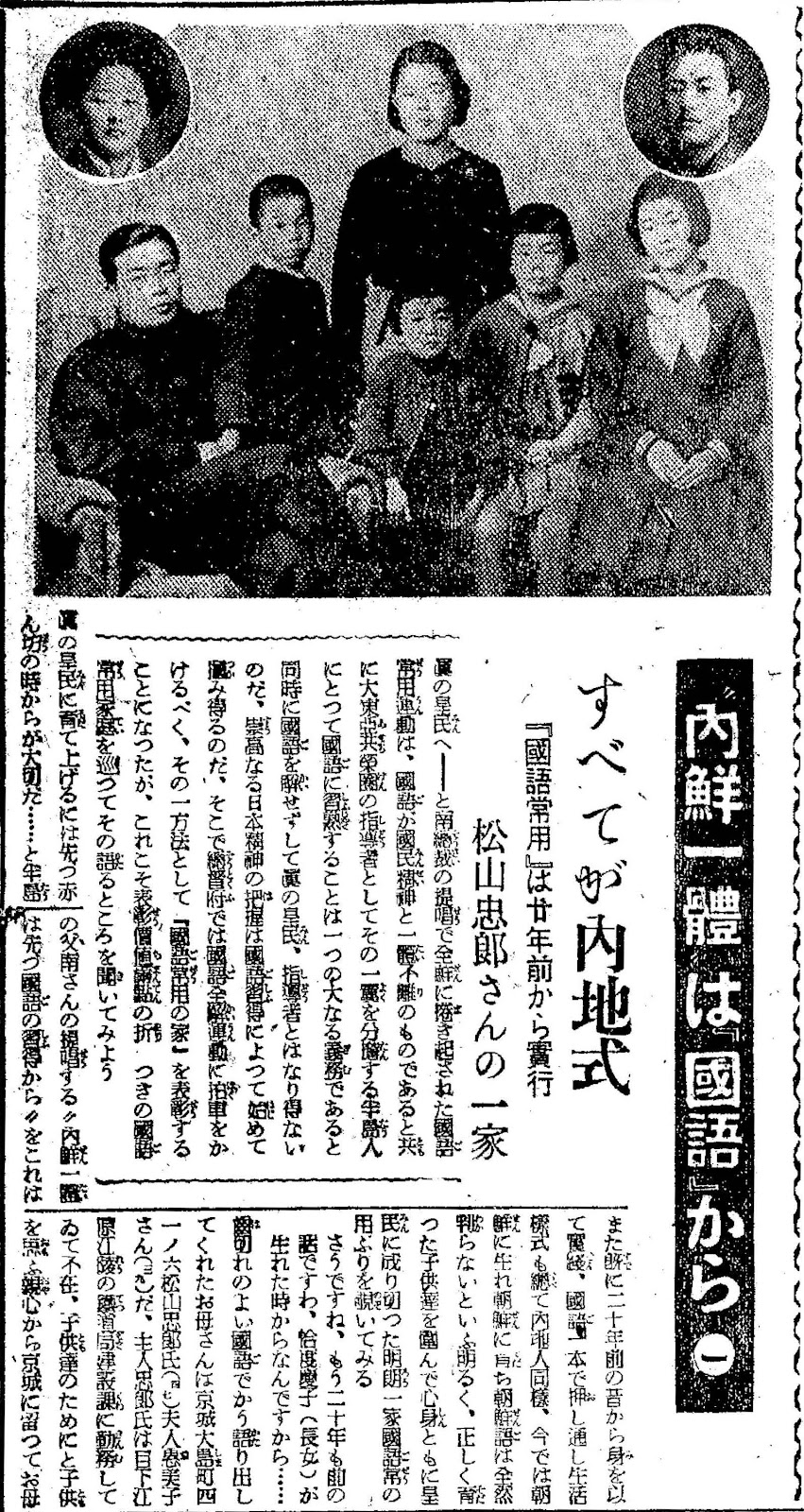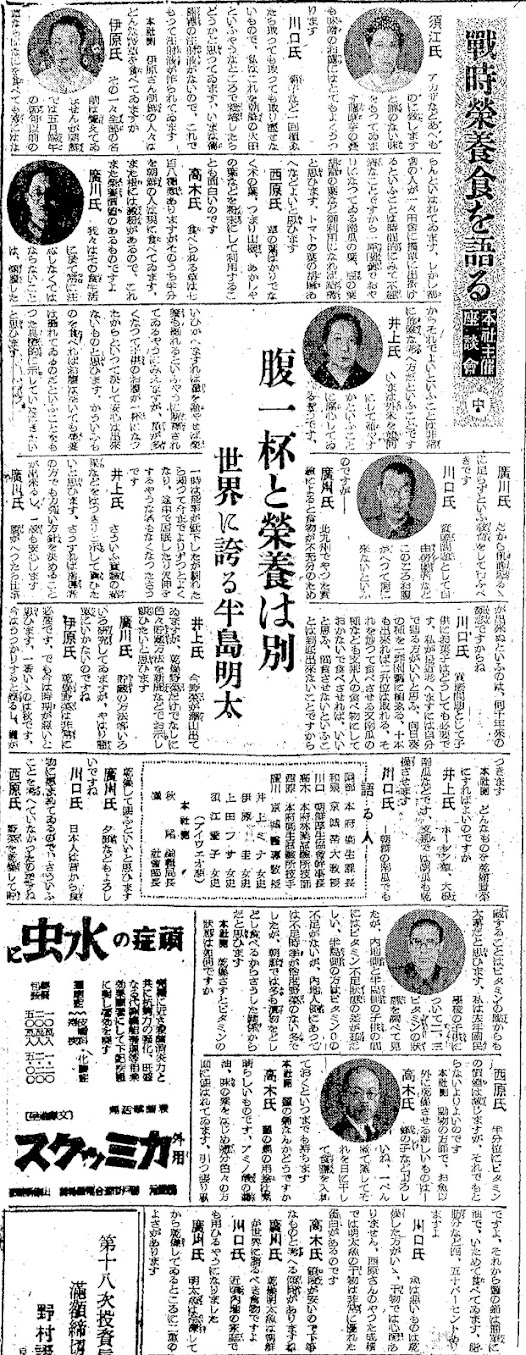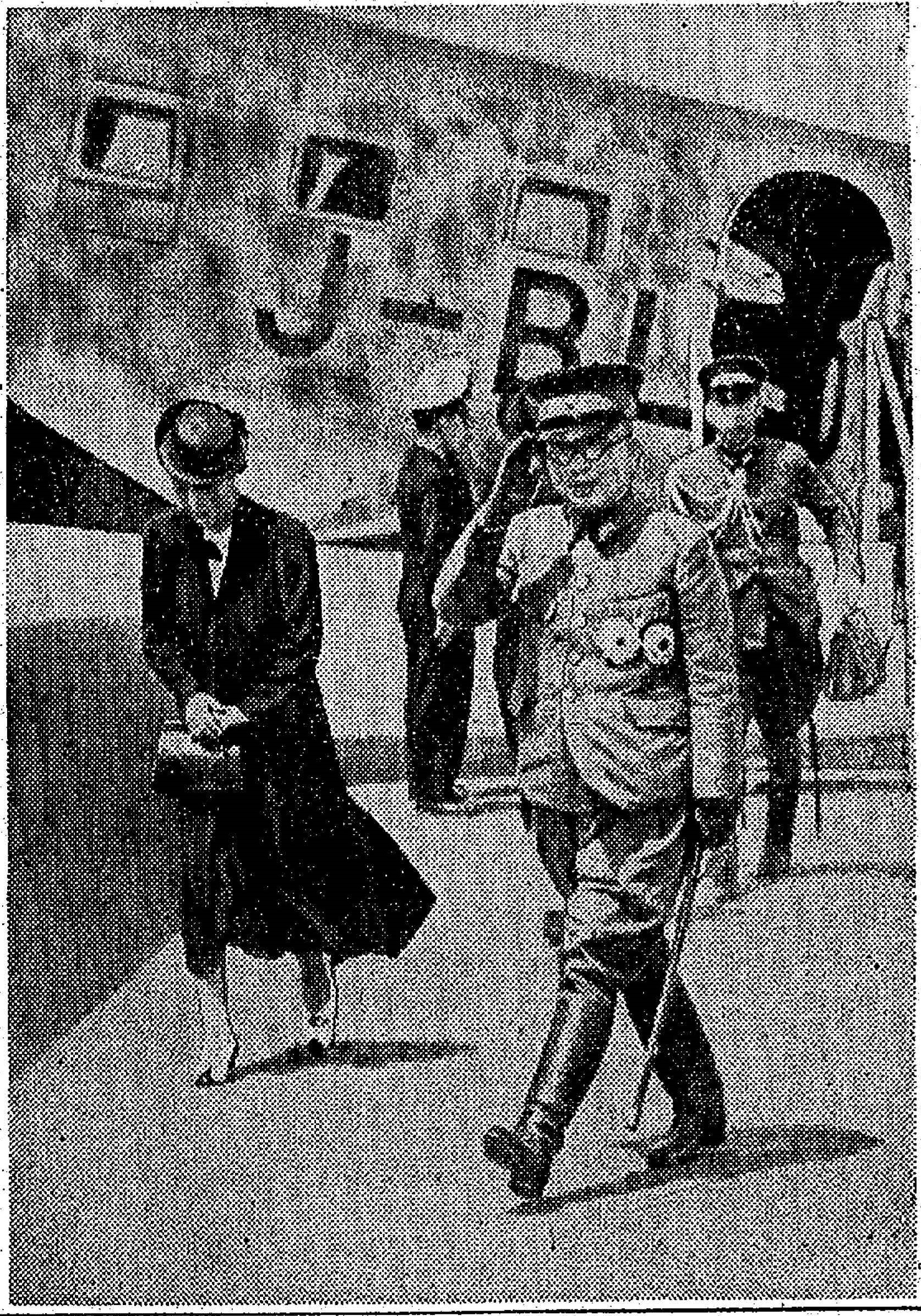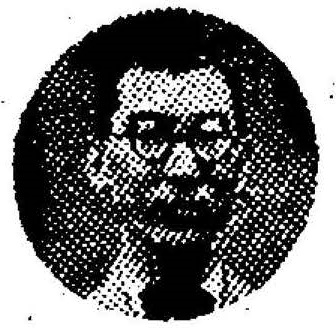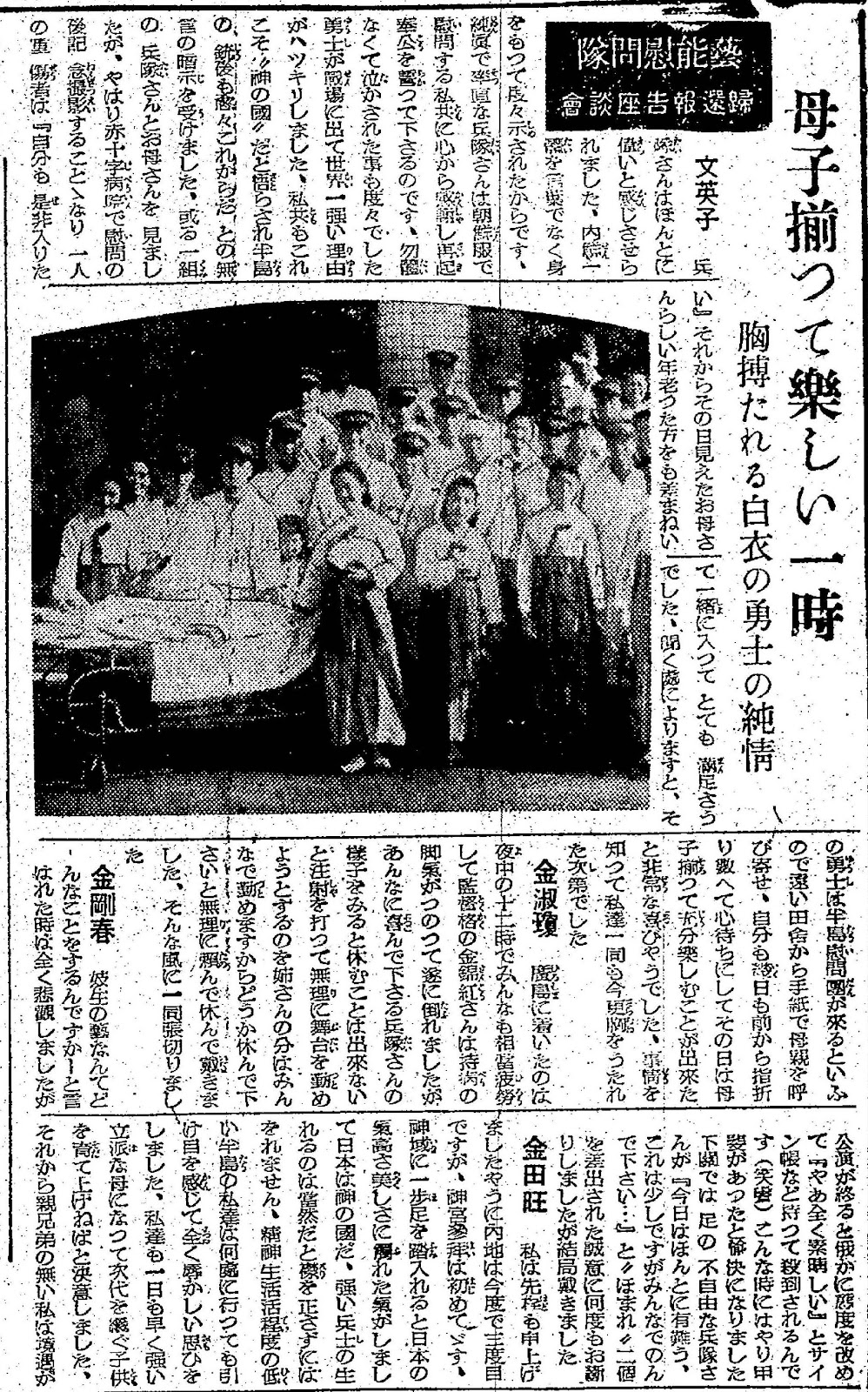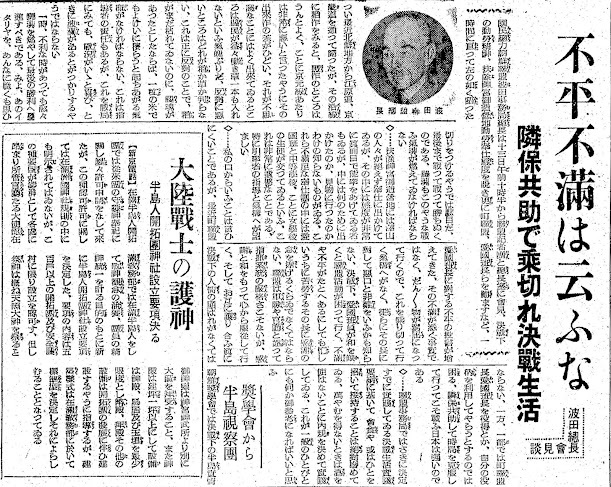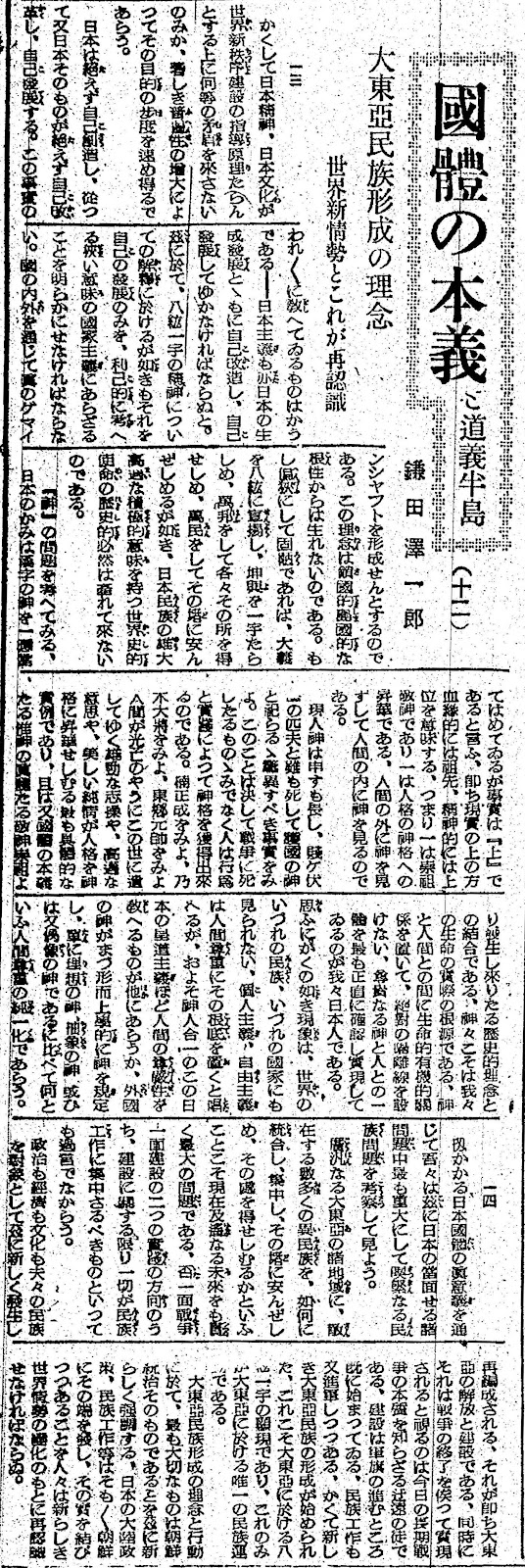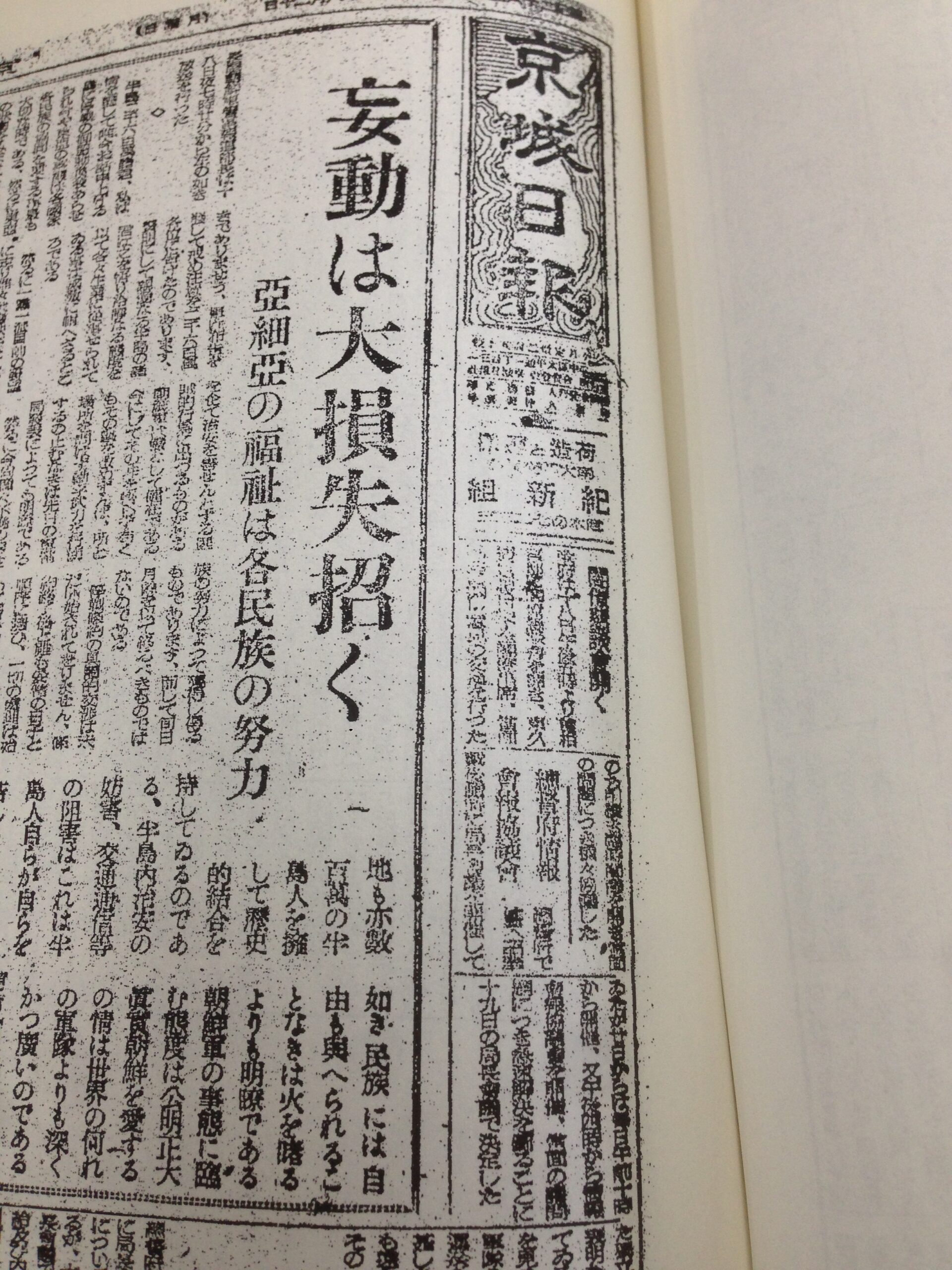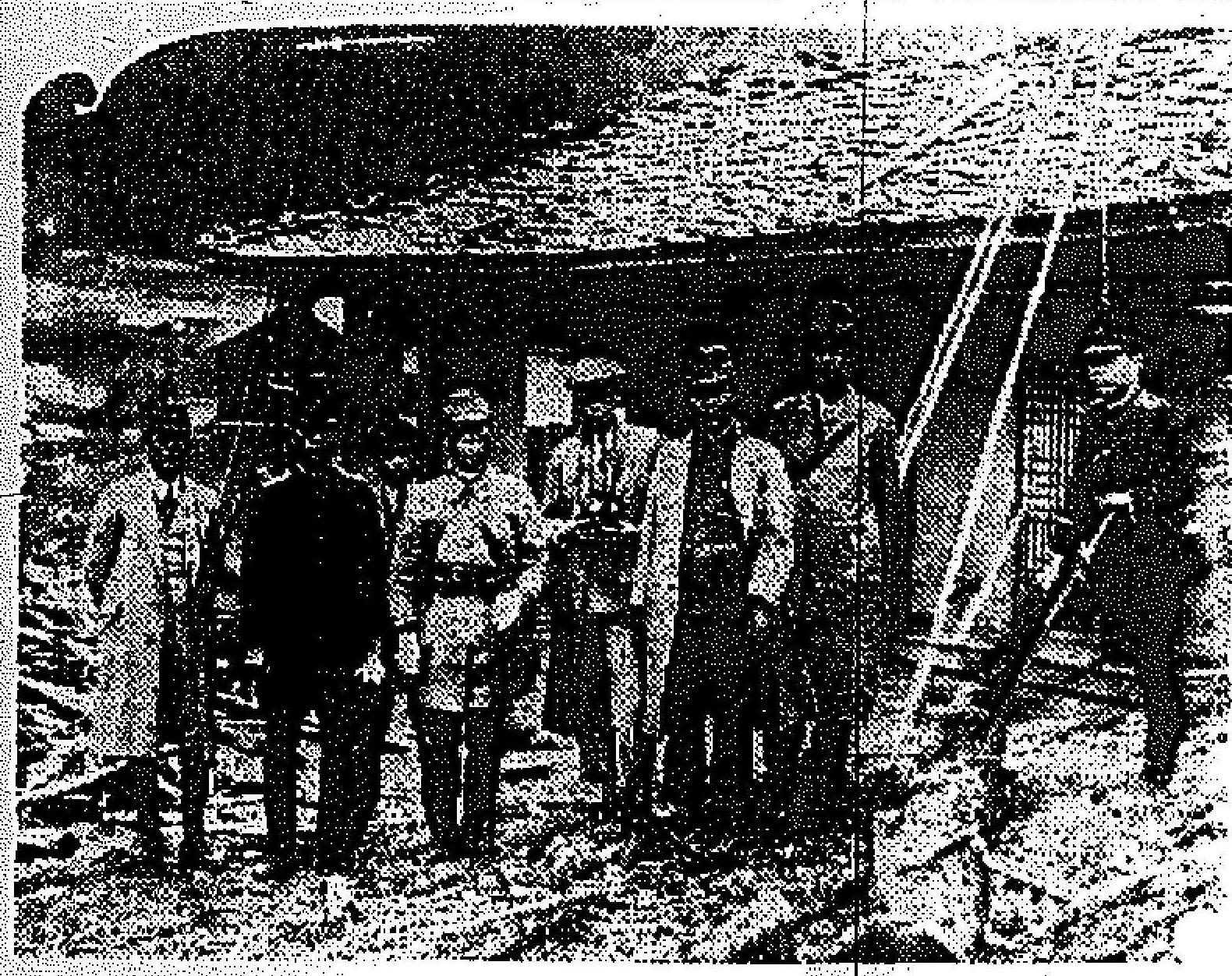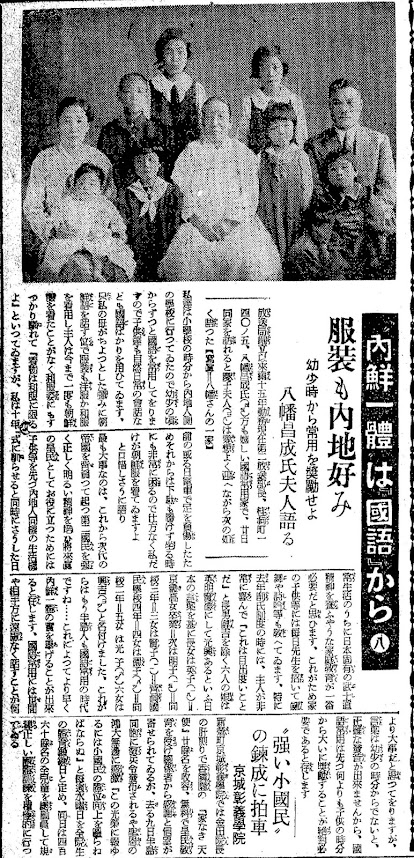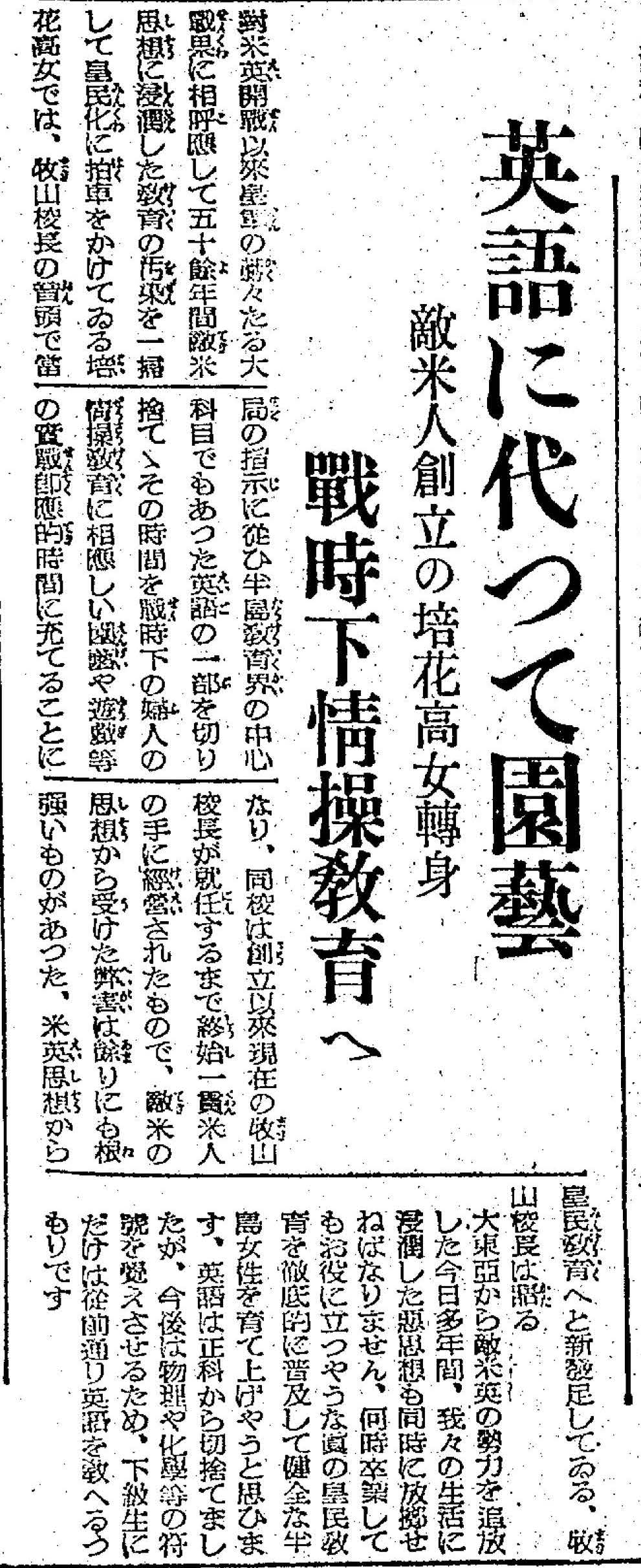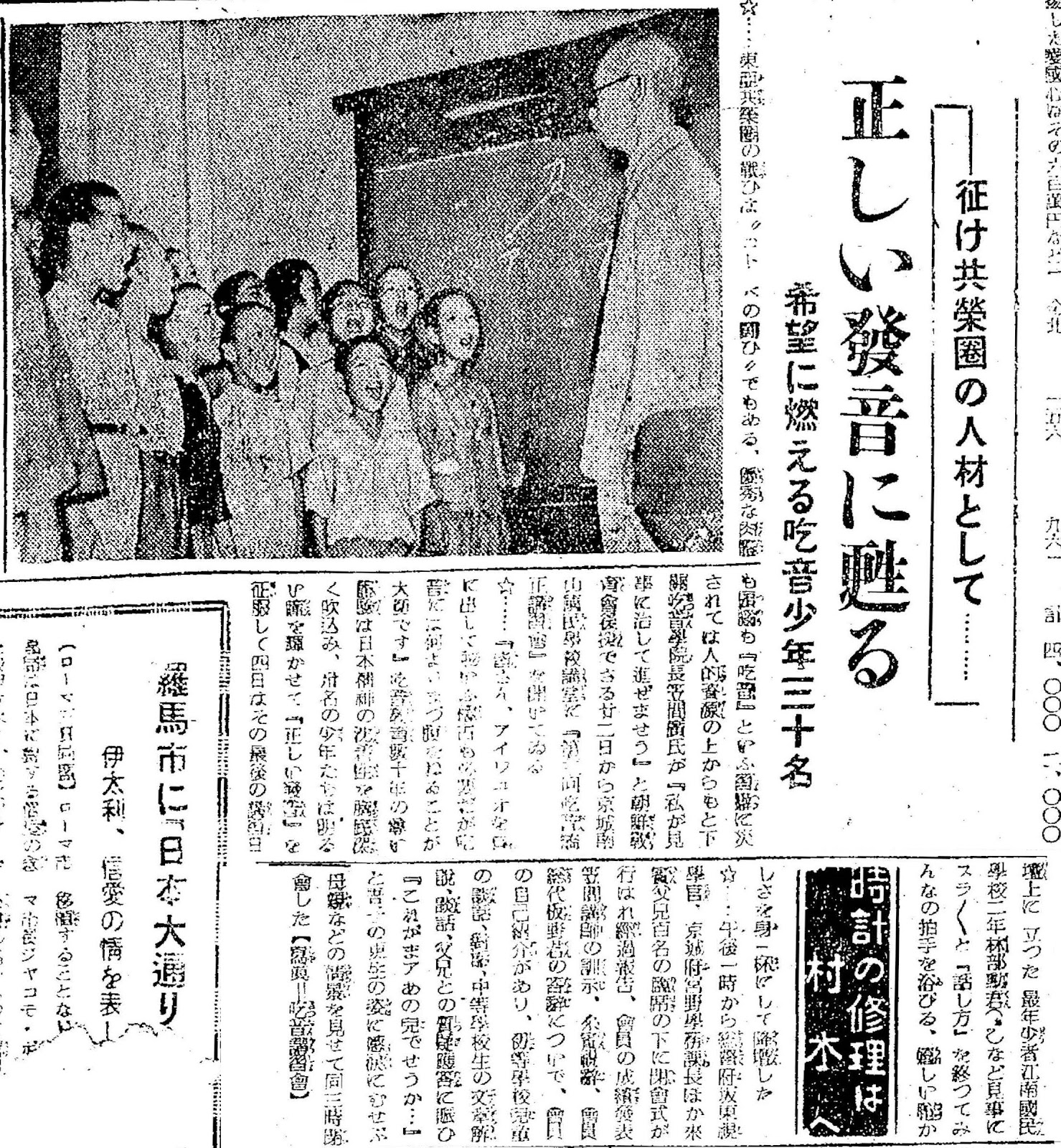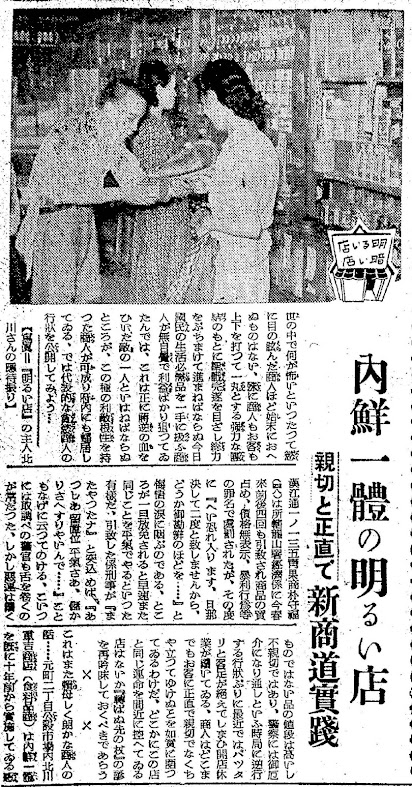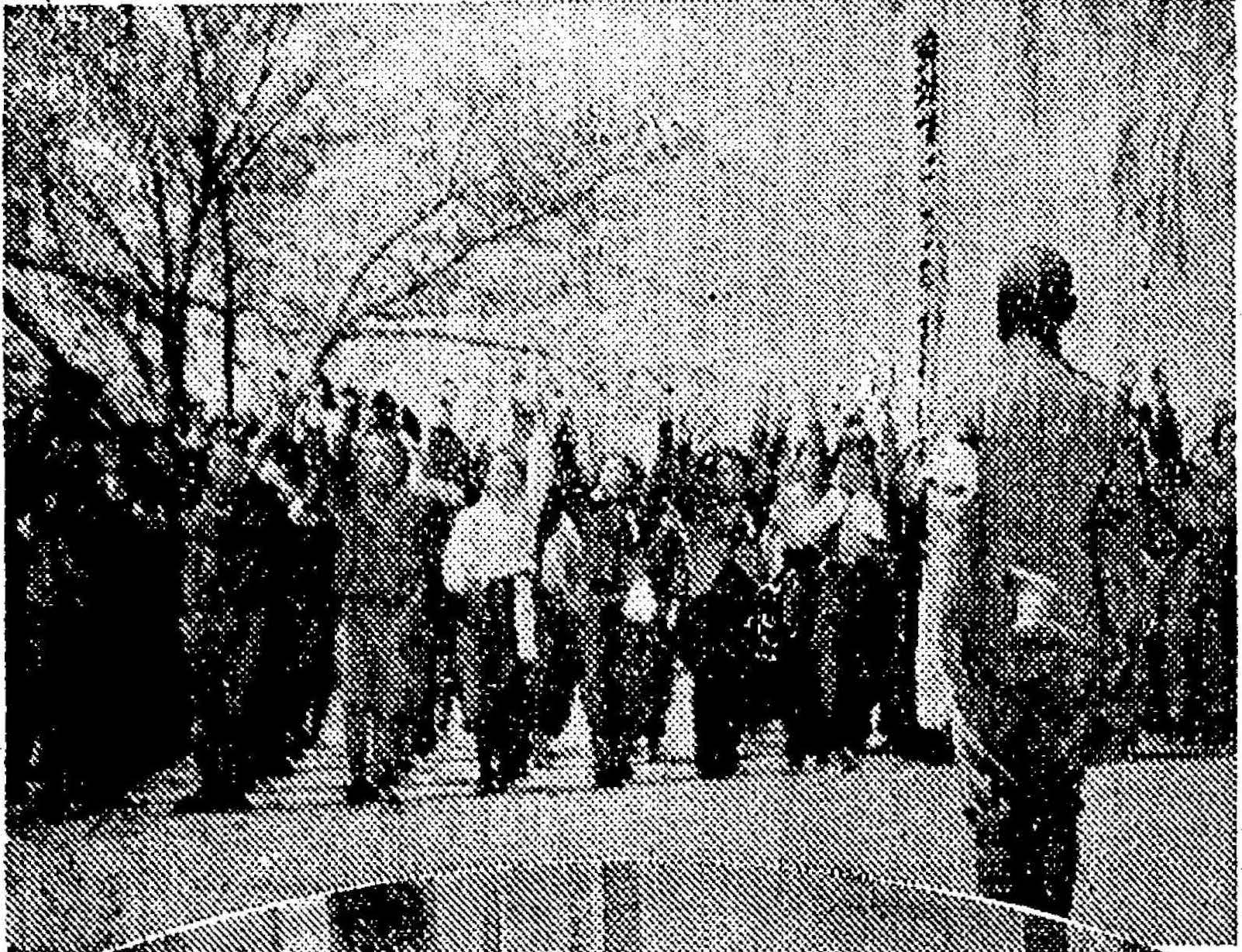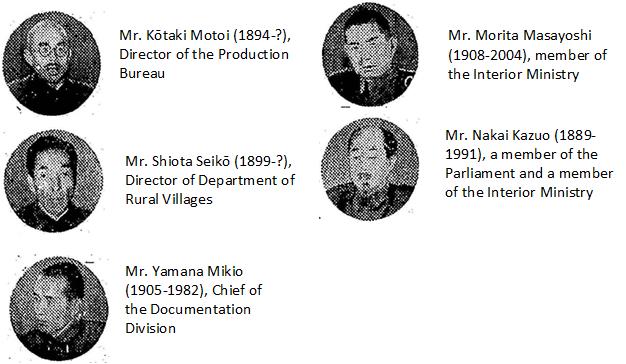
Imperial Japan had postwar plans to quadruple Japanese settlers in Korea to dominate the most technologically intensive industries, and suppress Korean access to higher education to quell ‘dissatisfaction’ (June 1943)
2023-07-01
419
2554
I recently came across two intriguing news articles from the Japanese colonial period of Korean history that shed light on the intricacies of the colonial government’s decision-making process. The goal was clear: they aimed to increase the number of ethnic Japanese people in Korea from 700,000 to a whopping 4 million to solidify Imperial Japan’s colonial control over Korea. However, their approach to achieving this was not without its contradictions.
While the officials wished to increase the number of college-educated Koreans to boost industrial production, they were wary of producing too many. An oversaturated job market could lead to a surge of unemployed college graduates, sparking potential discontent.
Simultaneously, the resettlement of educated Japanese into Korea was to provide staffing for the newly developed industries. Yet, they had to strike a balance as overpopulation of these industries could have led to staffing shortages back in Japan.
Furthermore, they faced a dichotomy in their approach to supporting businesses. On one side, there was a desire to extend aid to existing small and medium-sized businesses to ensure their survival (maintenance and nurturing), and on the other side, resources were to be expended to usher in new businesses (expansion).
The postwar immigration policy of the colonial regime, as discussed in these articles, would have seen the settlement of over 3 million additional Japanese people into Korea. Most would have been employed in the most technologically intensive industries, and a significant number of Japanese farmers would have settled in the Korean countryside. Consequently, educational opportunities and job prospects would have been far more limited for Koreans than for the Japanese settlers, exacerbating existing ethnic inequality and discrimination.
What is both revealing and disturbing is that the phrase ‘treated as Koreans’ from the text was indicative of mistreatment. This phrase underlines the generalized notion that Koreans were not treated well, and surprisingly, colonial officials openly admitted to this discrimination happening in Japan.
Interestingly, there are also depictions of Korean cultural practices, such as upper-class Koreans not smoking unless elders permit them to, not using the term ‘goodbye,’ and subordinates speaking to superiors while standing over them. As someone not intimately familiar with these traditions, I would love to hear from our Korean members about the accuracy of these descriptions.
I’m sharing these articles to provide some context to the complex dynamics of the colonial period and invite thoughtful conversation. As always, let’s keep exploring these issues.
(Translation)
Gyeongseong Ilbo (Keijo Nippo) June 19, 1943
A real look into the Korean Peninsula at war
Roundtable discussion with executives at the Interior Ministry of the Governor-General’s Office (Part 5)
Take care to understand the differences in the customs of the upper-class households
Kōtaki Motoi, Director of the Production Bureau: In Korea, too, there are polite individuals in irritating households that have been brought up in Confucianism for generations. In such households, family members refrain from smoke in front of their elders. Unless explicitly given permission by their parents, children wouldn’t even dare smoke if offered cigarettes as guests. It seems such strict manners are prevalent in the upper-class households of Korea. But such customs do not permeate the entire society. Furthermore, these customs can be strikingly different from those practiced in mainland Japan. For instance, in my household, I employ a maidservant who, according to Korean etiquette, stands and speaks even when the master is sitting. In other words, the maidservant stands up to speak while looming over her master. After speaking, she kneels down, places her hands on the floor, and then leaves without uttering a goodbye, because it is deemed inappropriate to sit together with the master. It is strange, but a simple phrase like “goodbye” do not exist. When the conversation ends, Koreans just bow silently and leave.
Nakai Kazuo, a member of the Interior Ministry and the Parliament: Evidently, the cultural differences are immense.
Shiota Seikō, Director of Department of Rural Villages: As Nakai-san previously pointed out, there is a prevalent belief that uneducated Koreans tend to migrate to mainland Japan, creating negative sentiments among the Japanese. However, this is not entirely true. Many educated Koreans also move to mainland Japan. However, when Koreans go to mainland Japan, they are generally treated as Koreans. Then, when those Koreans return to Korea, they tell others that mainland Japanese are extremely outrageous and have a sense of superiority. That is why we need to distinguish between the good ones and the bad ones.
Mr. Nakai: Speaking candidly about the student problem, I think it may be necessary to dissuade Korean youth from attending specialized schools or higher, such as law schools. Especially now, competition is fierce since many people want to enter specialized schools or higher in mainland Japan. One must be very competent to be able to enter such schools, but the problem is what happens after graduation. For example, it’s quite difficult to be hired as a public servant regardless of whether you are Korean or Japanese. Dissatisfaction arises. Receiving a higher education may cause mental distress, and I think it may lead to very negative outcomes.
Director Shiota: Even if those with aspirations in technical fields go to schools in mainland Japan and acquire skills, when they return to Korea, there is a delicate issue in that the factories and mines in Korea are unable to accommodate them all.
Mr. Nakai: In fact, even in mainland Japan, we are now saying, “Close down the specialized schools or higher that are not directly useful for this war”. The trend is moving in that direction. Ideologically, I think it would be good to strongly recommend a vocational education to our Korean compatriots as much as possible. Before, I thought that it would be good to have the Koreans work in the fields of science and engineering and have Korea be developed mainly by the hands of Koreans. But hearing your story, Director Shiota, it appears that the situation isn’t that simple.
Yamana Mikio, Chief of the Documentation Division: We are focusing on giving the Koreans a practical education in junior high schools and below.
Morita Masayoshi, member of the Interior Ministry: There are 700,000 mainland Japanese and 24 million Korean people. Therefore, the 700,000 will have to lead the 24 million, but I think this number is small. Some people say that there must be at least 4 million mainland Japanese people on the Korean peninsula. Then, what are the strategies for increasing this number, and how should we proceed?
Mr. Nakai: I would like to approach this issue from the following perspective. The main theme of this provisional conference is enterprise reinforcement and production increase, with a particular focus on resolving the food shortage problem. I would like to further explore the relationship between enterprise reinforcement, the Governor-General’s Office, and its impact on the Korean peninsula, before proceeding to tackle the current problem…
Director Kōtaki: In Korea, there are no enterprises similar to those in mainland Japan, either currently or under planning. That is what I meant when I said earlier that Korea is still a child. Therefore, we are not considering tackling the issues that mainland Japan is thinking about in a big way. Labor issues are being seriously considered, but the primary labor sources in Korea have traditionally been the rural areas. Small and medium-sized businesses in Korea are not primary labor sources, and they are something that we need to advance from now on. But even if we try to reinforce the small and medium-sized businesses in Korea now, I don’t think that it will have much effect. Instead, we must expand the businesses, depending on what they are. Accordingly, the maintenance and nurturing of small and medium-sized businesses in Korea is what we have been doing so far.
Mainland Japan has alternated between the maintenance and nurturing phase and the reorganization phase, and as it enters the decisive stage of this great war, it is about to actively enter a reinforcement phase. In contrast, Korea has consistently been in the maintenance and nurturing phase from beginning to end, as the Governor-General’s Office says, but actual problems cannot be solved this way. A growing sentiment of discontent is emerging. (to be continued…)
Welcoming the Desired Excellence in Technology, Immigration of Mainland Japanese Farmers also Welcome (June 20)
Director Kōtaki: One of the compelling reasons for maintaining and nurturing small and medium-sized businesses in Korea is that the relatively large population of mainland Japanese people who come to Korea is engaged in such industries. We can’t easily rationalize and consolidate these, so we have been focusing on maintaining and nurturing them as before. However, this cannot continue indefinitely. For example, if the textile industry in mainland Japan is developed, then the flow of people from mainland Japan to Korea will drastically decrease. There is also a large proportion of mainland Japanese people involved in wholesaling. As the products handled by the wholesalers gradually decrease, there are concerns about wholesaling businesses imploding in various areas.
The production of daily necessities sold in Korea is still very scarce in Korea. We are heavily reliant on production in Osaka and other places in mainland Japan. If production in mainland Japan can’t keep up, then products will become even scarcer in Korea. At this stage, we are backed into a corner, so we need to do something and take some measures to support small and medium-sized businesses. That’s why we are preparing this budget. I can’t say that it’s the same for the whole industry, but as you know, the production of daily necessities is not enough today. We have aimed to make Korea an Asian continental military base. We consider this our mission, and in some respects, we are proud of it. In that sense, even small businesses in Korea will be run by mainland Japanese people. In the future, the lives of Koreans will become more Japanized, and the consumer goods consumed by mainland Japanese people and Korean people will become the same. Naturally, since there are transportation difficulties in sending daily necessities to the Asian continent, such as Northern China, Manchuria, or small places like Kwantung Leased Territory, we want each place to be self-sufficient. That’s why we want Korea to supply itself with everything on a comprehensive basis. From that point of view, the time for reorganization has not yet come, and a considerable number of industries have already relocated here from mainland Japan due to the urgent need in Korea. I think there are more than 200 firms that have already relocated here, but I think we still have to grow more. However, even if we manage to find the funds and labor necessary for growth, the raw materials cannot be readily procured from mainland Japan. That’s why we have to produce such raw materials in Korea.
Creating new factories will inevitably lead to idle facilities. However, it is also necessary use this opportunity to bring excellent technology from mainland Japan to Korea to make it a supply base for the Asian continent. Integration with excellent technology will be good for the businesses themselves. So it’s not that we don’t have to reorganize the industry at all. It’s just that I think that we still need to keep encouraging small and medium-sized businesses.
Mr. Morita: So, in conclusion, it’s going to be difficult to increase the number mainland Japanese people in Korea, who currently number 700,000?
Director Kōtaki: It’s difficult, but if possible, I want to bring excellent technology to Korea. Electrochemical industries and light metal industries are going to expand rapidly. By having everyone from middle-level technicians, public servants, high-level technicians to lower-level leaders come in from mainland Japan, I think the overall technology level of Korea will improve, so I think we need to continue to bring in more people.
Also in rural areas, it would be very good if we could settle more mainland Japanese people, but since the situation now is such that Korean youths are helping out with farming in mainland Japan, I think it may be difficult.
Director Shiota: Having farmers from mainland Japan come here for the expansion and improvement of agricultural productivity would be very good. Such models exist here and there. For instance, it has been over ten years since about one hundred graduates from Katō Kanji‘s higher elementary school settled in the area along the route from Seoul to Wonsan. Furthermore, about one hundred and fifty children are currently attending the higher elementary school. These people truly embody the spirit of hard work. They built their own fancy homes, apparently made of brick, by employing Chinese laborers while they themselves also worked and earned wages. Even the Chinese laborers were astounded and claimed that they were more skilled than themselves. [laughter] They are farmers who have a very developed hard working spirit.
There’s another instance of two brothers who received the same education and settled in a deserted mountain near Mount Kongō. Initially, when they started planting deciduous pine trees and corn on the mountain, the Korean people mocked them, questioning what could be achieved in such a place. However, nowadays, everyone is following their example and planting corn. Models like these exist in various places. The worst are the so-called ‘haori peasants’ who act like landlords and employ laborers for farming. They even buy their vegetables from the Chinese, so some of them are gradually becoming unsuccessful.
In Korea, there are quite a few immigrants who came through the Oriental Development Company, some of whom have been successful, while others have not. To name some recent outstanding cases, people from mainland Japan are coming to Korea and growing sweet potatoes. We thought the best yield in Korea would be about 200 kan [750 kg] per tan [~0.25 acre, ~0.1 hectare], but there are places in Gongju where the yield is 960 kan [3,600 kg]. Surrounding areas have all turned to sweet potato farming, and Chungcheongnam-do‘s sweet potato seedlings are in high demand. I believe that it’s better to bring in one mainland Japanese farmer to Korea than to bring in ten mainland Japanese technicians. That’s why I’m trying to bring in about 50 families of mainland Japanese farmers who have received an education like Katō Kanji‘s, but with the current situation, many farmers find it increasingly difficult to live in Korea and are leaving. There are various reasons, but young men are increasingly being drafted and dying in the war. If they stay in mainland Japan, relatives can somehow lend a hand, but here in Korea, there’s nothing they can do, so some of them return to mainland Japan. Regardless of whether bringing in young, vigorous individuals from mainland Japan would work or not, there is a considerable demand for mainland Japanese farmers to settle in Korean rural areas.
I recently visited a place where there were eight households of mainland Japanese farmers, nine of whom had soldiers who were conscripted for war. In one household, a 16-year-old child was all alone, making a seedbed. In one irrigation association district, it seems everyone is trying to help in various ways, but it still seems daunting. Even though good farmers have come, there’s no way to retain them. There is nothing better than to bring in mainland Japanese farmers, because it’s certain that things will improve this way. (to be continued…)
(Transcription)
京城日報 1943年6月19日
決戦半島の真姿
内務省委員総督府幹部対談会(5)
上流家庭では厳格理解せよ、習慣の違い
上瀧基、殖産局長:朝鮮でも先祖代々儒教で育ったやかましい家には行儀正しいものもある。そういう家では例えば目上の人の前で煙草は喫まない。親子で来た客などに煙草をすすめても親が喫めといわない限りは喫まない。朝鮮でも上流家庭ではそういう厳格な作法があるようだ。ところが一般社会にそういうことはない。もう一つは若しそういう厳格なものがあったとしても、それが内地の場合と全然正反対なことがある。例えば私の家に女中を使っているが、朝鮮の流儀から言うと主人が坐っている時でも女中は立ったまま物を言うことが礼儀で、目上の人には立ちはだかって物を言う。手をついて『さようなら』を言わずにすっと立ち上がって言う。主人と同座ではいけないということなのだ。それから妙なことであるが、『さようなら』というような簡単な言葉がない。話がきれると、だまってお辞儀して帰ってしまう。
中井一夫・内務省委員・衆議院議員:非常に違ったところがあるのですね。
塩田正洪、農村局長:先程中井さんの仰有ったことの中に、内地にどうも教養の低い者が来るので内地人としてもいい感情が湧かんというお話であったが、実際は相当に教養のある者もいるわけである。ところが内地に行ってみると、一概に朝鮮人として扱われる。そこで今度は朝鮮に帰って来た連中は、どうも内地人は優越感を持っていて不埒千万だというようなことにもなる。いい分子と悪い分子との見さかいをつけて頂くことが必要だ。
中井氏:学生問題に就いて率直に言うと、私は朝鮮の青年を余り専門学校以上の法科というような学校にはやらないように仕向けることも必要ではないかと思う。殊に今は内地でも専門学校以上の学校には入学志願者が殺到していて非常な競争である。それに来て入学出来るというのは余程出来る人に違いないけれども、卒業後のことが一つの悩みである。例えば官公吏の採用問題でも、内鮮人を問わず余程困難だ。そこに不平が起る。高い養育を受けたために却って精神的な煩悶を来すということになって、非常に悪い結果を齎すようなことにもなると思う。
塩田局長:技術者方面でも志を立てて内地の学校に行って技術を修得していざ朝鮮に帰って来ても、工場鉱山では全部収容の余地がないとそこにデリケートな問題があるわけである。
中井氏:実は、私共は今内地でも『この戦争に直接役立たない学校なんか専門学校以上のものは閉鎖して了え』と言っている。機運は大分そういう風に動いている。思想的ないろんな関係から見ても、半島同胞には出来るだけ職業教育を大いに推奨することがいいのではないかと思う。そうして理工科方面をやらせて朝鮮の開発は大いに半島同胞の手でやらすということがいいのではないかと思っておったのであるが、塩田さんのお話を聞くとそれも簡単には行かないわけですね。
山名酒喜男、文書課長:中等学校以下は実業教育一点張りでやっている。
森田正義、内務省委員:内地人七十万、半島人二千四百万、そうすると七十万が二千四百万を指導して行かなければならぬことになるが、これでは数が少ないと思う。或る人は少なくとも半島に四百万の内地人はいなければならんといっている。そうすると、これを殖やす方法及び持ってゆき方について何か対策は...
中井氏:その問題に就いては私はこういう所から承りたいと思う。それは今度の臨時議会の主題は企業整備及び生産力増強、殊に食糧問題の解決ということが重点であるから、企業整備と朝鮮総督府との関係、どういう影響が半島に及ぶかという問題をお聴きして、それから今の問題にはいって頂いたらどうかと思うが...
上瀧局長:朝鮮としては、内地が現にやるし、これからやらんとするような企業がまだない。それがつまり先刻申しました朝鮮がまだ子供だということである。であるから内地が考えておるような問題は大きく取り上げるということは考えていない。労力の問題が真剣に取り上げられて来ているが、従来朝鮮の労力の源泉は農村にある。朝鮮に於ける中小商工業は労力の源泉とはならず、寧ろこれから進めて行かなければならない。そういうものを今整備してみたところで、大して効果はないと思う。ものに依ってはもっと拡充しなければならん。したがって朝鮮に於ける中小商工業は維持育成であるということで今日まで来ておるわけである。
内地は或る時には維持育成、或る時には整理統合ということで来て、結局この大戦争の決戦段階に入って積極的に整備ということが取り上げられて来ているが、朝鮮は終始一貫維持育成で来ているところで実情はどうかと言うと、総督府は維持育成というが現実の問題はそれで済まない。我々をどうして呉れるのだという気持ちが出て来ている。(つづく)
欲しい優秀な技術、内地農家の移住も歓迎(6月20日)
上瀧局長:朝鮮で中小商工業の維持育成という一つの有力な理由としては、朝鮮に来ている内地人の比較的多い階層は中小商工業であるが、これをうかつなことで整理統合ということは出来ないので、従来之等に維持育成という方面に努力して来たのであるが、現状はいつまでもそれでは行けない。例えば内地で繊維産業が整備されて行くとすれば、今まで内地から朝鮮にはいっていたものがどんどん減る。卸に就いては相当内地人方面が多い。だんだん取り扱う商品が減って来るにしたがって自滅するのではないかと心配を各方面でしている。
朝鮮で販売されておる日常生活必需品の生産はまだまだ朝鮮では非常に少ない。大阪その他に多く依存している。それが内地でも足らなくなると朝鮮では益々少なくなって行く。こういう状態にある中小商工業に対して何等かの対策をとらなければならぬという追いつめられた段階に立って、なんとかしなければならないというので、そういう予算も出すことになっている。工業に就いても同じだとは言えぬが、生活必要品の製造業は御承知のように今日とても足らない。朝鮮はかねてから大陸兵站基地ということを目標にして、我々もそれを自任し、或る面に於いては自負して来ておる。そういった意味から朝鮮の小さいものでもそれが内地人の事業であり、また今後益々朝鮮人の生活は内地化され、内鮮人間の消費物資が共通して来るようになると自然、大陸方面に対してどうしても出したい生活必需品は北支、満州、或いは小さくいって関東州というような所でも、輸送の困難というようなことから、それぞれ自給自足をはかりたいということであるが、朝鮮としては、一歩出て全般的に何とかして供給したいという考えを持っている。そういう点からまだまだ整理の機会に至らず、そういった朝鮮の差し迫った必要からして既に内地から移駐して来た工業は相当の数になっている。二百以上もあるだろうと思う。しかしまだまだ殖やして行かなければならんと思う。しかし殖やすについてはそれ等に必要な資金とか労力は何とかするとしても、原材料は中中内地からは来ない。だから朝鮮でそういう原材料を生産して行かなければならない。
新しい工場をどんどん造ると遊休設備が出来ることになる。しかしこういう機会にこそ内地の優秀技術を朝鮮に入れて大陸の供給基地たらしめるということも必要である。技術のなってないものは優秀な技術に統合して行けば事業自体にもいい。だから工業の面でも全然整理しなくていいというのではないが、大体中小工業というようなものは、やはり奨励して行かなければならんじゃないかと考えている。
森田氏:そうすると結論として七十万の内地人を殖やすということは、中々難しいということになりますか。
上瀧局長:難しいのですが、出来れば優秀な技術を朝鮮に持って来たい。電気化学工業とか軽金属工業というようなものは、これからどんどん拡充されて行くわけで、そういう所の中堅技術者、公務員、ずっと上の高級技術者から下の方の幹部職工といったようなところまで、内地からどんどんはいって来ることに依って朝鮮全般の技術の程度も向上すると思うから、そういう方面にまだまだ入れなければならんと思う。
それから農村に於いても農村に内地人を植え付けるということは出来れば非常にいいことであるが、朝鮮の青年が内地に手伝いに行っている位であるから、これは言うべくして中々難しいと思う。
塩田局長:農業生産力の拡充増強に内地の農家が居ることは非常にいい。そういうモデルが方々にある。例えば京城から元山に行く途中に加藤完治さんの高等国民学校を出たのが百戸ばかり来ているが、もう十年以上になる。それからもう百五十人位子供が国民学校に通っている。これなんぞ本当に勤労精神の体得者で、自分達だけで家を造った、煉瓦造りみたようなしゃれた家ですが、それを支那人に請け負わして労力は自分達が雇われて行って人夫賃を貰った。さすがの支那人も舌を巻いて、我等よりうわ手だと言った(笑い声)それ位に勤労精神の発達した農民である。
もう一つはやはりそれと同じ教育を受けた者で、金剛山の近くで荒れた山に入った兄弟がある。最初は山に落葉松を植えたり玉蜀黍を植えたりしていると、それを見て朝鮮人が、「あんなところに何が出来るか」と言って嘲笑っていた。ところが近頃はみんなそれに倣って玉蜀黍を植えたりしている。そういうモデルは方々にある。一番いけないのは羽織百姓というやつで、地主気取りで労働者を使って農業をする。野菜も支那人から買うというようなので、だんだんいけなくなったのもある。
朝鮮では東拓の手を介して来た移民が相当にあるが、成功したのもあり、成功しないものもある。また極めく最近の例では内地人で朝鮮に来て薩摩藷作りをやっているのである。我々も朝鮮ではせいぜい反当り二百貫位がいいところだと思っていたが、公州で九百六十貫を挙げている所がある。その周囲は皆藷作りになって、忠南の藷の苗を一手に出しているが、そこで私は考える。技術者が十人居るよりも一人の農家を朝鮮に入れた方がいい。それで今加藤完治さんあたりの教育を受けた内地農家を五十戸位入れたいと思ってやっているが、こういう時勢になってだんだん住み難くくなって朝鮮を退散する農家が多くなった。いろんな事情もあるが、だんだん若い者は壮丁に取られて、戦死をしたというようなことになると、内地に居れば親族縁達が何とか手伝ってもくれるが、ここではどうにもならんというので帰るのもある。若盛りの者を内地から連れて来てうまく行くかどうか、朝鮮の農村でも内地農家を入れて貰いたいという声は相当にある。
この間に行った所では、内地農家が八戸あって、そこから九人も出征しておる。その中の一軒では誰もいないので十六になる子供が一人で苗床を作ってやっていた。水利組合地区でみんなで色々面倒を見ているらしいが、しかしそういうことでは心細いらしい。折角いい農家が来ても、それを足止めする方法がない。内地農家を入れるに越したことはない。必ずよくなるに決まっているのだから(つづく)
Source 1: https://www.archive.org/details/kjnp-1943-06-19
Source 2: https://www.archive.org/details/kjnp-1943-06-20


